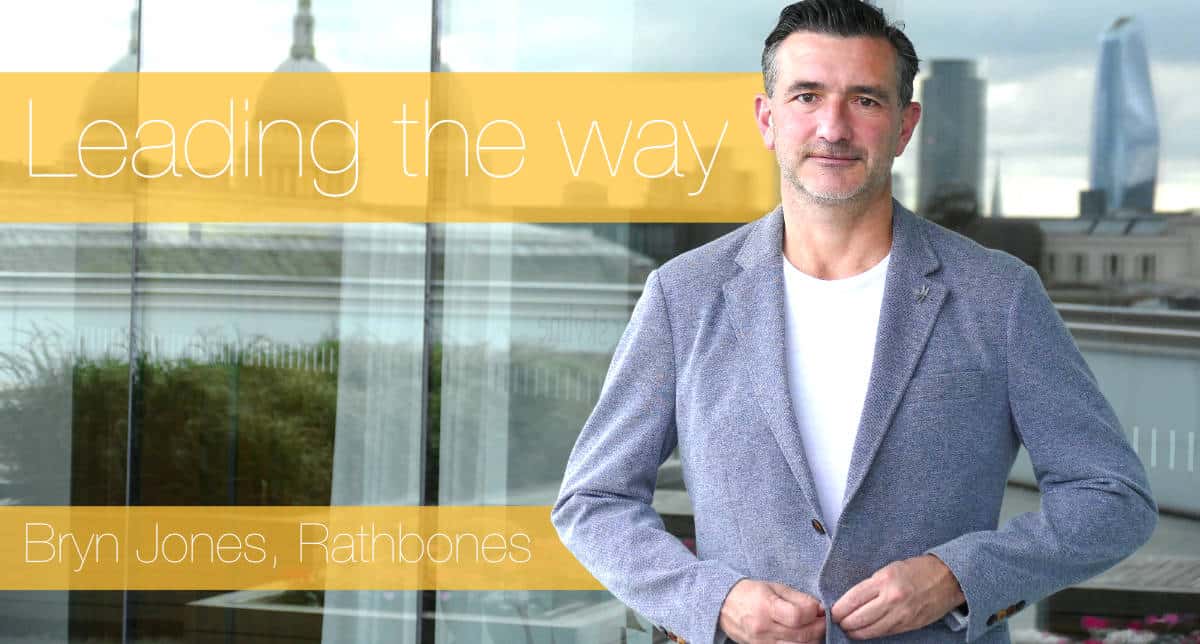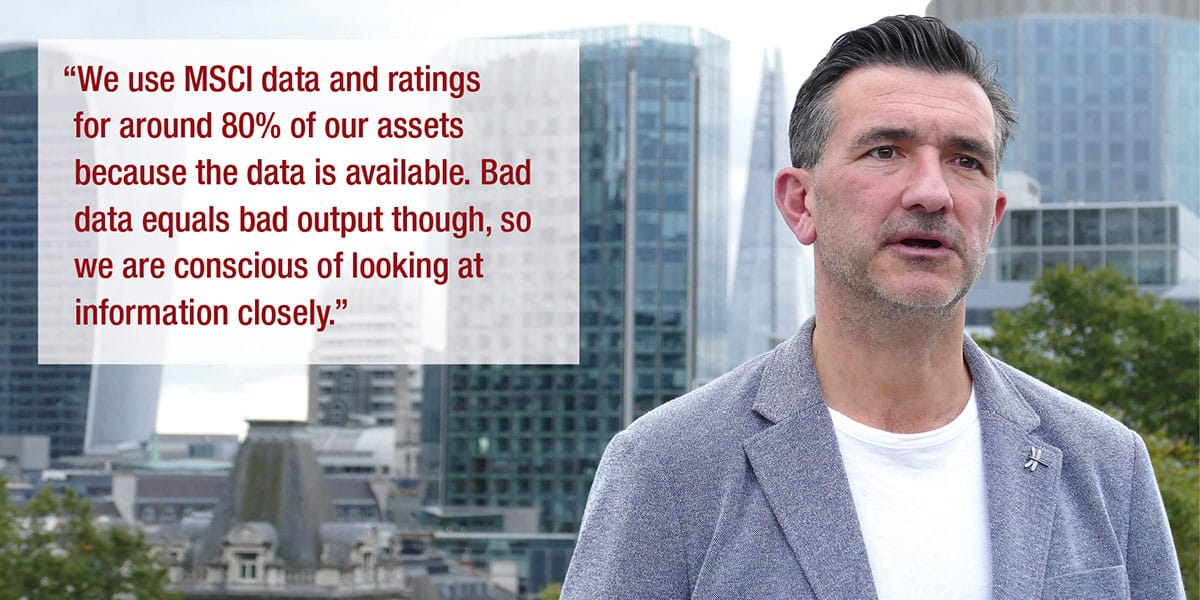Bryn Jones, head of fixed income and lead manager Rathbone Ethical Bond Fund and the Rathbone Strategic Bond Fund talks about building a strong framework for sustainable investing
I know your ethical bond fund is one of the oldest, what were the drivers behind the launch?
The fund was launched in 2002 so it has been around for a long time. It came out of a team that joined which eventually become Rathbone Greenbank Investments. It started out for small and discretionary clients and managed around £10m to £12m in assets under management but by the time I joined in 2004 it had grown to the mid £30m pounds. Today, the ethical fund has a total of approximately £2.9bn, split between £2.65bn onshore and £250m offshore.
What do you see as the drivers in general behind the demand for sustainable investments?
My background is in human geography so I have a strong understanding of the environment, and I knew that ESG funds would be in demand but did not think it would take as long as it has. I think there are a few things driving change today. The first is cultural. There is a big generational shift with the millennials heading into middle age and a younger generation, 20 to 28-year-olds going in the same direction and pushing for sustainability. For example, two years ago, everything was wrapped in plastic but that is not the case now. They are much more interested in buying products not wrapped and quid pro quo in sustainable investing.
There is also the breakdown of the fallacy that sustainable investments do not generate returns. That is now the opposite with strong performance compared to more traditional asset classes over the past two years. The other driver is regulation. There is a lot coming down the pipe. In Europe, there is the SFDR (Sustainable Finance Disclosure Regulation) and the EU Taxonomy. In the UK, the FCA (Financial Conduct Authority) is looking at developing its own set of rules but regulators in both places are becoming much more hands on.
What do you see as some of the main challenges?
Data is one. Whether it be for bonds or equities, there are no quantifiable frameworks or standardised data, which makes it difficult to make justifiable investment decisions. For example, with Scope 1, 2 and 3 (of Green House Gas or GHG emissions reporting), I am not sure the data available is 100% right and without that in place, it can be a bit of a mess. I think we will see more regulation and a move to sustainable accounting similar to US GAAP. This would be positive for the industry because having standardised data enables us, for example, to compare company ‘X’ with company ‘Y’ and will allow everyone to report the same things.
The SFDR (Sustainable Finance Disclosure Regulation) is forcing companies to disclose their activities. We are focused on Article 8 (which is defined as a fund which promotes environmental or social characteristics, or a combination of the two, provided that the companies in which the investments are made follow good governance practices).
Have you developed your own proprietary research framework?
Our goal is to deliver good sustainable returns. In the past, we looked at negative screening and had a zero tolerance for sectors such as gambling, weapons and alcohol but we had to evolve the process and integrate ESG criteria into our investment decision making process. Now we have a credit analysis overlay so we can flag any risks, and governance issues. We also look more closely at the financing side and for example will not invest in a bank that has an outsized proportion of their loans to oil and gas businesses. We not only analyse what the company is doing but also the plans it has in place to cut its carbon emissions by 2030.
Have you developed your own proprietary research framework?
I have a very good team around me, and we have a strict investment process. One of the differences is that we are active managers. As mentioned, we do our own fundamental credit analysis and have our own proprietary valuation tools. We apply a Sharpe ratio to all our assets and look for the best risk adjusted returns. However, we integrate ESG alongside financial analysis across all our investments and not just fixed income. We use MSCI data and ratings for around 80% of our assets because the data is available. Bad data equals bad output though, so we are conscious of looking at information closely. The rest of our Fixed Income assets that don’t have ratings are social housing and some of the smaller renewables, are off benchmark. By carrying our ethical and ESG approach, we believe that a focus on our process encourages greater corporate accountability and transparency as well as improving environmental stewardship.
What is the process in more detail?
The environmental considerations include factors such as resource depletion, biodiversity loss, climate change, pollution and waste. As for social, this has become more important since Covid. We examine how a company manages its relationships with its employees, customers, suppliers, local communities and other stakeholders, as well as looking at health and safety issues. Governance focuses on a company’s structure, ethics, leadership team and diversity, executive pay, corruption, anti-competitive practices and related issues.
Looking ahead, what do you see as the significant trends impacting the bond markets?
On the ESG front, I think greenwashing will be one of the things to watch as sustainability investing continues to grow. You have to be careful because we all use third party data providers, and you have to ensure that there is no conflict on interests.
More generally, there are many things to watch as we emerge from the pandemic. I am nervous about the tapering as governments start to cut back on their huge fiscal stimulus programmes that were put in place during Covid-19. This could lead to a period of higher inflation and higher interest rates all of which will have an impact on fixed income.
Biography: Bryn Jones is the head of fixed income for Rathbones and is lead manager on the Rathbone Ethical Bond Fund and the Rathbone Strategic Bond Fund. He joined Rathbones in November 2004 from Merrill Lynch, where he managed $2 billion of fixed income assets. Jones is a member of the Rathbone Strategic Asset Allocation Committee, non-executive chairman of Rathbones’ Fixed Income Committee, and an adviser to the Rathbone Banking Committee. He is a WMA representative for the HMT DMO’s (Her Majesty’s Treasury – Debt Management Office) Gilt market consultation process. Previously he was a fixed income fund manager at Merrill Lynch Investment Managers.
©Markets Media Europe 2021
©Markets Media Europe 2025












